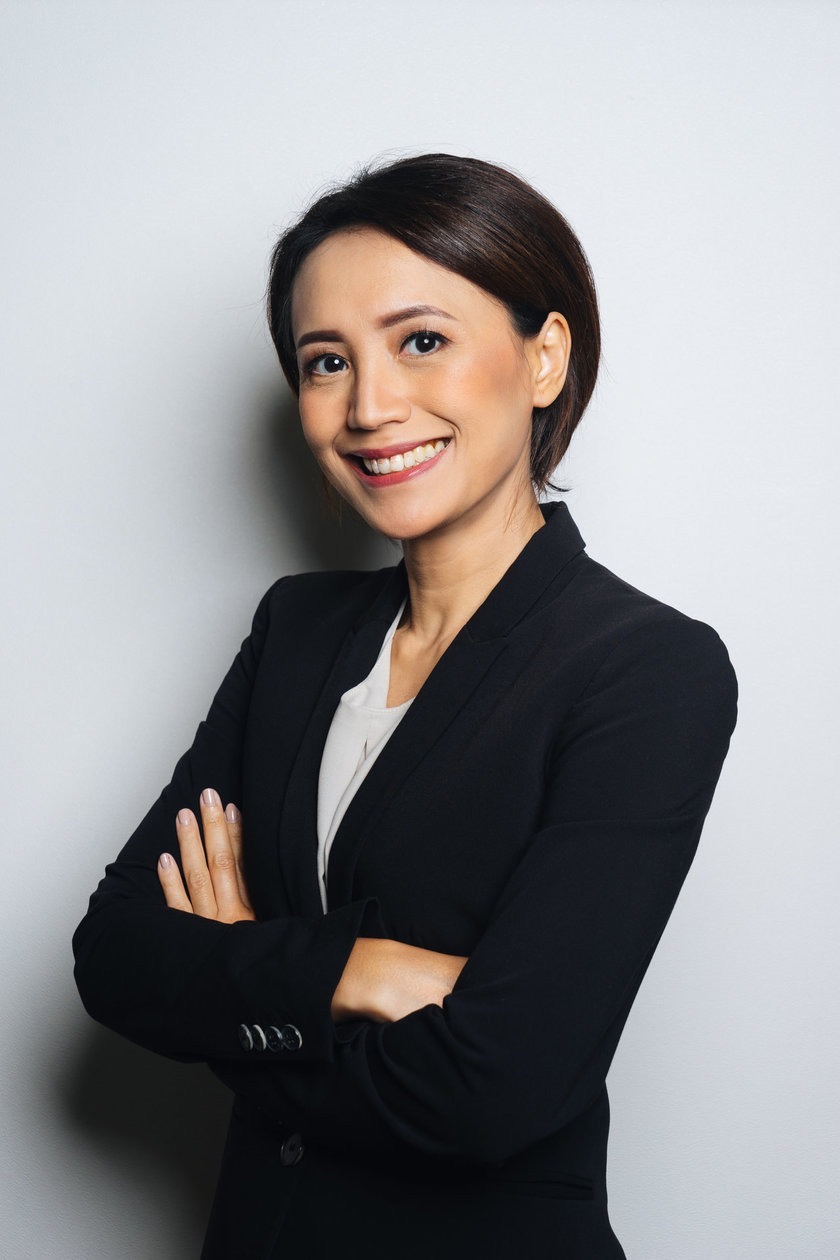Diversity and Inclusion Leader at P&G Indonesia
Whether by introducing paternity leave or onsite daycare, Angela makes sure women are seen and treated as equal in her organization. A natural influencer, Angela gracefully navigates through resistance and obstacles to bring change.
Angela was taught that she must not limit herself. That was instilled in her adolescence by her all-girl Catholic school education. Known for its strict discipline, the school and its principal shaped her view on what women can do: everything. At home, her father taught her to believe in herself. Both are lessons Angela later found to be vital.
There were times when Angela felt very unconfident. For instance, the time when she ran for chairman of her law school’s student organization. But then she realized she only needed to change her mindset. “Getting people on board with new ideas means changing the mindset,” Angela said.
Angela joined Procter and Gamble (P&G) Indonesia in the legal department almost 10 years ago. Five years later, she was asked to lead the Diversity and Inclusion Team. Directed at all employees, the enterprise’s diversity and inclusion program aims to establish gender equality in the workplace.
At first, Angela and her team faced some resistance in executing the proposed initiatives. But the persistence and patience in building understanding and making sure all needs were met became key in changing people’s minds. “(Resistance) is mostly because people are not clear on the intentions,” Angela said.
Last year, P&G Indonesia rolled out a 30-day paternity leave for its male staff. According to Indonesia’s 2003 Manpower Law, married fathers are only entitled to two days of paid paternity leave. By giving men more time to be with their newborns, they are expected to be more sympathetic towards their female colleagues – whether as a manager or as a staff.
“Support from men [on gender equality initiatives] can be much more effective for women in the workplace,” Angela said.
The program also spearheaded the implementation of onsite daycare services, identified by Angela as an unmet need. In the Jakarta office, the biggest demand is during the Eid holiday, while in the plant facility the demand for daycare is triggered by working in shifts.
Early this year, Angela oversaw the enterprise’s program Gerakan Maju Wanita Indonesia (ANJANI) for training women entrepreneurs. Businesses from a variety of sectors such as design, construction and property, marketing & communication services, food, travel, IT and legal were involved in the four-day training workshop. Senior female representatives from P&G Indonesia as well as external speakers from corporations such as ANGIN and Facebook led the sessions. The women entrepreneurs were given training on business strategy, strategic customer targeting, developing mobile friendly creatives, access to capital, human resources, leadership and tips on how to successfully pitch to large corporate organizations, among others.
Among P&G’s strategies about gender equality is also through public communication. Globally, P&G has been an active campaigner and publisher of its gender equality efforts.
Despite having worked for years for women development in the workplace, GLI is still a new term for Angela. But she is convinced that gender lens is something that’s been done by multiple parties whether its corporations or the government, subconsciously or consciously.
Angela sees herself as a capacity builder and networker. Through the ANJANI program, which she led with her team at P&G, Angela did not only design and deliver modules of training, but also connected people by inviting partners to get involved. Angela could also point to the best practices for people wanting to push for gender equality in their workplace.





